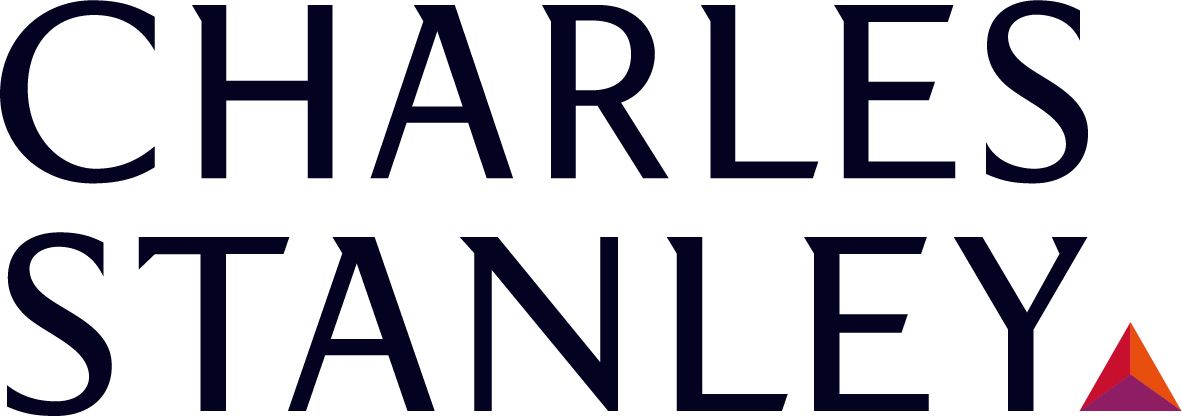Navigating the great wealth transfer
What skills do IFAs need to advise on intergenerational wealth?


As the financial advice industry has evolved through the advent of new technologies it has opened the door to a more interactive client experience.
It has also triggered a shift from the old-fashioned “gentleman's club” of conducting business to a faster-paced and more immersive relationship where the client is much more involved and aware of the process as opposed to being kept on the sidelines.
Meanwhile, different generations within family structures displaying different attitudes towards risk, can lead to differing opinions around future management of family wealth.
In this report, we examine the types of skills that IFAs need when advising on intergenerational wealth transfers and the help that is available to advisers.
Charles Stanley's Book of Stories which provides practical help to financial advisers when it comes to dealing with clients and their beneficiaries can be found here



Exploring the skills needed to manage intergenerational wealth transfers
Words: Ima Jackson-Obot
Images: Pexels

The process of transferring wealth is emotional and complex and there is more to succession planning than simply handing over assets.
Different attitudes towards risk can lead to differing opinions around future management of family wealth.
Additionally, more clients want to transfer part of their wealth earlier to help the next generation instead of inheriting on death but they also want to remain in control of wealth as they often feel this may be needed for long-term care needs.
Clients are also often less interested in traditional equity based investments with increasing interest on ethical and sustainable concerns
Chris Bishun, investment solutions director at Brooks Macdonald, says despite the older generation having had a higher tolerance towards risk in the past, their current circumstances have altered their behavioural traits with a view to preserving wealth, which is ever more prevalent when the receiving generation exhibit more risk-taking traits.
He adds: “We have seen spending among millennials has also shifted to 'the experience economy'. Compared with affluent baby boomers, affluent millennials place more value in things such as wellness, entertainment, and experiences.”
As customer expectations have changed - they expect the level of transparency to be high, and they want to be kept informed at all times on their progress - what bearing does this have on the skills advisers need when discussing with clients about intergenerational wealth transfers?
Learn to listen
According to Dominic James Murray, an independent financial adviser at Cameron James, when advising on intergenerational wealth, a key skill is the ability to listen intently to clients and understand exactly what they want to achieve.
“It requires a closer focus on their family relationships,” Mr Murray adds. “For example, there are often a number of stakeholders involved of differing ages and at different stages of their lives.”
We have seen spending among millennials has also shifted to 'the experience economy'.
At Cameron James, in the past, the firm has found it beneficial to complete conference calls with one or more members of the family to ensure everyone is on the same page. This Mr Murray says helps spouses, children or beneficiaries to actually understand what is going on and why.
John Porteous, group head of distribution at Charles Stanley Group, says: “From an adviser’s perspective, what we need to remember is it is about facilitating difficult conversations; so a lot of the skills that are required are around effective questioning, knowing when and when not to talk about things, reading body language, engaging the broader family group and using effective conversation techniques, like storytelling and scene setting.”
Mr Bishun says soft skills such as applying discretion and trustworthiness are important in approaching this subject: “Psychologically there is a tendency for clients to actively avoid uncertainty, particularly around potential losses, and indeed loss of control, and therefore an ability to clearly articulate available options are vital.”
Vulnerability is also a big factor as it applies both to older clients but also to younger clients who can be daunted by the prospect of being handed the family keys - even for those with some financial knowledge.
From an adviser’s perspective, what we need to remember is it is about facilitating difficult conversations.
Therefore, acknowledgment of this can lead to better outcomes for clients.
Mr Bishun says there is a skill in bridging the communication gap between generations, and an ability to break down complex narratives into digestible advice is required.
He adds: “There are a multitude of investment offerings and multigenerational solutions available which continually change which requires ongoing monitoring.”
Future-proofing
And as the world of financial advice evolves, driven by more sophisticated technology, changing customer expectations and even the long-term effects of the pandemic, this will have an impact on the way advisers approach intergenerational wealth transfer conversations.
The world has been forced to live its life online and financial advice is no different. Advisers need to become more adept at reading body language on a video call, while they will need to learn how to manage expectations when several people are attending a call.
Mr Porteous says: “When I have spoken to people via Zoom, I have almost had to learn how to communicate again as there are subtle but critical differences in the way you communicate.”
One example of good practice he has seen, when it comes to communicating with clients in this online-heavy world, is where advisers write to all the individuals ahead of a meeting to explain to them what they can expect during the meeting.
Actions like these, Mr Porteous says, can really help those attending to feel more involved and better valued during the conversation.
Is the future bright?
Even after widespread vaccinations have been rolled out and lockdowns relaxed, it is likely that many people in the medium and possibly long term will still prefer the relative safety of having a virtual meeting from their home, rather than travelling far or on public transport to attend a face-to-face appointment.
Mr Murray says: “As the financial advice industry has evolved through the advent of new technologies allowing a more interactive client experience, there has been an increased emphasis from clients to move away from the old-fashioned 'gentleman's club' of conducting business and instead to a faster-paced more immersive relationship where the client is much more involved and aware of the process as opposed to keeping them on the sidelines more.”
Additionally, with the increased awareness of the public on wealth transfer, there is more of an emphasis on working with the family as a whole, dealing with the parents and the children.
“There perhaps isn't the secrecy of finances in families - a Chinese wall as such - that there once was, and parents want to be more transparent with their financial affairs as they can see the benefits of their children being aware of their parents' wealth and estate planning etc,” Mr Murray adds.
“The ability to manage multiple stakeholders simultaneously and to advise the family as a whole is of paramount importance.”
And when it comes to shifting consumer attitudes, while it is not a universal rule, Mr Bishun says, baby boomers tend to prefer concepts and ideas with which they are familiar and have been tried and tested.
Meanwhile, millennials tend to be more global in their outlook, given their access to the internet and social media, and as a result of spending more time abroad, whether studying, living or travelling, so there is an element of advisers being able to ‘talk their language’.
There perhaps isn't the secrecy of finances in families - a Chinese wall as such - that there once was, and parents want to be more transparent with their financial affairs as they can see the benefits of their children being aware of their parents' wealth and estate planning.
So when investing, millennials gravitate toward “exciting or trendy” investments.
Mr Bishun adds: “Education is required to balance out their investments as, what at first glance may seem like a diversified portfolio, on closer inspection may be a concentration of wealth in certain stocks or sectors, leading to increased correlations and volatility during times of market stress.
“This increases the importance of understanding what’s under the bonnet of third-party funds, and investors need to ensure they are able to identify the risks and opportunities. This is where using dedicated investment managers can add value.”
For some advisers grappling with changing technology may prove easier than adapting to the new ways of speaking with their clients and for others it is vice versa.
There is an increasing availability of training, particularly in a post Covid world, where interactions have moved towards an online setting, although advisers like Kevin Coleman, a chartered financial planner at Rice and Co Financial Management, says more is needed.
Connections
And while an added benefit to online accessibility, is the ability to connect with others in the industry based on a common theme, such as intergenerational wealth transfer, Mr Bishun says topics such as ESG are still evolving here in the UK, and there is notably some confusion around some of the financial jargon used in relation to this.
Mr Murray says the emphasis from the FCA on requiring qualifications to provide Financial advice should be lauded, and certainly the technical knowledge provided by these institutes (CII & CISI) is fantastic, especially as it is looking more and more self-evident that the FCA will require level 6 qualifications sooner rather than later.
However, it is the soft skills, the actual provision of the advice that can be lacking from a training and education perspective.
“For some advisers this is not an issue, they are natural talkers who have an affinity for making the complex sound simple, but there are many advisers, who for no fault of their own, do not have the skills to translate the technical knowledge they have to the client, who more than likely does not share their level of knowledge on financial matters,” Mr Murray adds.
At Cameron James the company sees soft skills as the type of skill that is typically learnt from mentorship from an older more experienced adviser who pass on their way of doing things and how they go about providing financial advice.
But Mr Murray offers a note of caution: as financial advice becomes more and more decentralised, through technology, the industry is losing this traditional soft skills education channel and there is likely to be a big need for some other form to fill the gap.
For some advisers this is not an issue, they are natural talkers who have an affinity for making the complex sound simple, but there are many advisers, who for no fault of their own, do not have the skills to translate the technical knowledge they have to the client.
At the end of the day it is vital that advisers ensure that all stakeholders are being managed appropriately: the parents, children, tax advisers and any other stakeholder that may be affected by the transfer.
The great wealth transfer is already underway with a new age of investors needing to be catered to. The challenges and opportunities within the intergenerational wealth transfer sphere affect all aspects of financial planning - hence advisers are in a very good place to respond to what is needed.
ima.jacksonobot@ft.com

Credit: Pexels/Pixabay
Credit: Pexels/Pixabay

Credit: ThisisEngineering/Pexels
Credit: ThisisEngineering/Pexels

Credit: Lukas/Pexels
Credit: Lukas/Pexels

Credit: Fauxels/Pexels
Credit: Fauxels/Pexels

